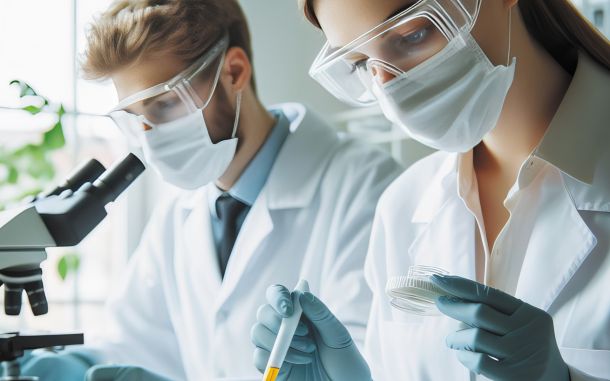The Biology of Thankfulness

In This Article
-
Gratitude is more than a feeling—it is a biological signal that rewires the brain toward peace.
-
In moments of sincere appreciation, the heart and mind align in a rhythm of healing.
-
Thankfulness is a bridge between the seen and the unseen, connecting the physical with the spiritual.
One of the important concepts in Abrahamic faiths is thanksgiving.
Thanksgiving is a profound sense of gratitude that involves recognizing aspects of our biological structure for which to be thankful. According to research, it has various positive effects on both physical and emotional well-being. "Whoever is grateful, it is for the benefit of his own soul" (Qur'an 31:12). Throughout history, religious leaders and philosophers worldwide have expressed ideas about the essence of thanksgiving. One of the primary reasons many believers inquire about each other's well-being is to create an opportunity to express gratitude to God. In this way, those who ask and express gratitude engage in an act of worship together, preparing the ground to benefit from material and spiritual blessings.
The feeling of gratitude, at the heart of thanksgiving, helps us turn to God wholeheartedly; it gains the value of worship through the acknowledgment of its true source. In recent years, particularly in the fields of neuroanatomy and genetics, various studies have begun to highlight the biological influences and outcomes of feelings like gratitude.
Brain structure and gratitude
One aspect of gratitude's connection to healing, satisfaction, and happiness is that it serves as a reward for both our worldly life and our state of mind. True gratitude occurs with the full recognition of the blessing, as appreciating the giver of the blessing is largely dependent on recognizing the blessing itself.
Magnetic resonance imaging (MRI) scans of brain tissue have shown that people with a developed sense of gratitude have more gray matter. Gray matter, responsible for processing information, functions more effectively in learning and decision-making mechanisms for those who are consistently in a state of gratitude. According to studies, the limbic system, responsible for emotional experiences in the brain, helps control challenging emotions such as sadness, anger, and anxiety when gratitude is felt. Those with a strong sense of gratitude have healthier nervous systems, as gratitude suppresses problem-producing mechanisms and activates problem-solving systems. Gratitude is an active form of thinking that disables most of the negative emotions of the ego. Many negative emotions lying in the subconscious, such as jealousy, greed, hatred, ambition, laziness, and arrogance, are related to ingratitude. Gratitude cleanses these layers of negative emotions, but it requires serious effort to recognize and appreciate the blessings we have received.
The prefrontal lobes of the brain contain regions involved in empathy, decision-making, and self-control. Research has shown that feelings of gratitude stimulate these areas of the brain. The hypothalamus, which plays a significant role in regulating sleep cycles, is also activated when we feel gratitude. Feeling gratitude for the blessings received activates the hypothalamus, leading to better quality sleep with positive thoughts. Studies show that even recognizing simple acts of kindness can activate the hypothalamus, thus regulating all body mechanisms it controls. Being in a state of gratitude and recognizing blessings contribute positively to brain health.
Psychological effects
Neurotransmitters—the chemical substances secreted by the brain that transmit stimuli between neurons—affect human emotions. Conversely, human emotions also influence the secretion of these substances. Dopamine and serotonin are two of the most important neurotransmitters responsible for regulating mood. Those who deeply and sincerely feel gratitude secrete more dopamine and serotonin, which have happiness-inducing effects. Dopamine, often called the "motivation molecule," contributes to feelings of motivation, happiness, and focus. Serotonin, often referred to as the "happiness chemical," plays a critical role in feelings of well-being and happiness.
When the brain receives enough positive neural signals through gratitude and thanksgiving for endless blessings, these neural pathways strengthen, leading to feelings of happiness and satisfaction that develop with constant and conscious gratitude. Studies show that gratitude, which acts as a natural antidepressant, serves as a bridge between past happy moments and future hopes.
One should not wait to be happy to be grateful; every moment of gratitude increases happiness. (Thanksgiving itself is a blessing and requires its own expressions of gratitude). It is understood that thanksgiving activates the brain’s memory center and the amygdala, reduces the secretion of stress and anxiety-inducing hormones such as cortisol and adrenaline) and improves mood. This leads to stronger heart function and greater resistance to emotional negativity. Long-term research shows that those with a sense of thanksgiving cope better with stress and toxic emotions. Various studies support the fact that recognizing blessings is a significant factor in leading a less stressful life. Recognizing blessings increases feelings of sufficiency, which leads to a decrease in symptoms of depression and anxiety.
Effects on physical health
While reducing stress hormones, gratitude also helps to better manage autonomic nervous system functions. Neurochemical hormones secreted by the nerves contribute significantly to our physical health. Dopamine plays a role in regulating blood vessel function and heart rate, while serotonin is involved in sleep and the digestive system. Although serotonin is primarily found in the intestines, it affects the brain by crossing the blood-brain barrier.
A study evaluating the impact of gratitude on physical well-being showed that patients who kept a gratitude journal experienced a 16% reduction in pain symptoms and were more willing to collaborate with doctors for treatment. Studies have also shown that thanksgiving regulates dopamine levels, increasing vitality and thereby reducing perceived pain.
People with a well-developed sense of gratitude experience slower neurological deterioration. Additionally, inflammation decreases in grateful individuals, making it easier to regulate blood pressure. The feeling of gratitude, formed by recognizing received blessings, leads to the secretion of the hormone oxytocin, which dilates blood vessels, lowers blood pressure, and protects the heart. Through these physiological processes, gratitude has a pain-relieving effect.
The promise in the verse "If you are grateful, I will increase My blessings upon you" (Qur'an 14:7) may also indicate that the blessing of healing readily comes into play through various physiological pathways that affect our physical health, beyond just psychological channels. It also refers to the otherworldly rewards associated with gratitude and thanksgiving.









